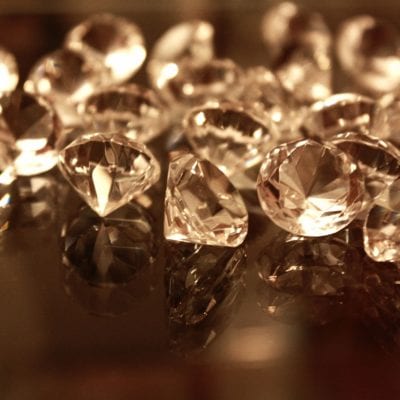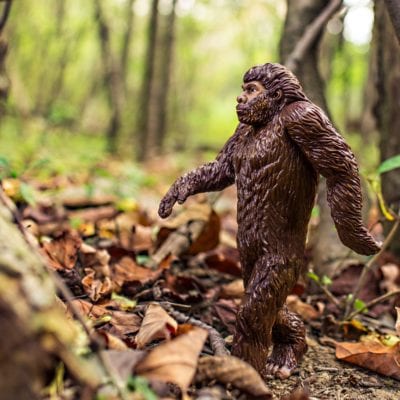From Jung to Trump: The Puer Aeternus at large
Over the past few years, most of us have watched with bated breath as the shape and face of the political system has changed, both in the UK and the USA. With what many will agree may be a touch of voyeuristic intrigue, we stood by and watched a man take the oath of office.
There is not a single journalist, blogger or frankly anyone on the planet that has not voiced an opinion on the motivations behind his actions. We have all picked apart his personality in one way or another. And what have we really deduced?
We all know that type of man who never grows up; no doubt many reading this can pinpoint at least one person in their social circle that they have at times jokingly referred to as ‘Peter Pan’.
This person is the permanent adolescent – juvenile, sex-obsessed, irresponsible, petulant and impetuous; the one who can’t take any criticism or adversity, who is quick to boast of his successes and equally quick to blame others for his shortcomings.
This kind of character is an archetype, the ‘puer aeternus’ or ‘eternal youth’ that constantly pops up in myth, literature and history. I came to know his nature more intimately as I wrote my debut novel, Mother of Darkness, but he was already a familiar presence in the world.

So what makes a puer aeternus? And what are the dangers of having such a figure ascend to power?
He is, in essence, a man-child, trapped in the fantasy and enchantment of childhood magic. He is Peter Pan, but he is also Russell Brand and Michael Jackson; he’s the 45 year old that still takes his washing home to mummy; he’s a womaniser, a misogynist, a narcissist… it’s possible he’s a megalomaniac with a saviour complex.
And yet he can be charming, the life and soul – or he’s a hedonist, a self-harmer, an addict. Never quite attached to real life, he’s always seeking to escape it, to transcend it. The higher the better, whether that means learning to fly, taking up heroin or becoming President of the United States. Sound like anyone you know?
The term ‘puer aeternus’ was first used by Ovid to describe Iacchus, the child god of secret mother-cult rites, the Eleusinian Mysteries.
Stay with me – Classics is darker and more interesting than you might think…
This divine child Iacchus was associated with Dionysus, Greek god of ecstasy, amongst other things, and it is this ecstatic state, that of standing outside oneself, that the puer is constantly trying to achieve. Carl Jung (the Swiss psychiatrist who founded analytical psychology) identified him as an archetype – a universal symbol. His student, Marie Louise von Franz, went on to write liberally about the problems this character faces.
Puers are stock figures in literature, because they are prevalent and recognisable figures in real life. Many of my favourite novels have puers at their core, (something which raises dubious questions about my own psychological composition). Edward St Aubyn’s Melrose trilogy – soon to be televised, featuring Benedict Cumberbatch –perfectly embodies the complex psychology that creates such a character: in Patrick Melrose’s case an alcoholic mother, an abusive father and a childhood of neglect, cruelty and paternal rape.
In my novel Mother of Darkness, Matty Corani is also a lost boy. The death of his mother in childbirth has left him seeking a maternal goddess figure. He elevates and deifies each girl he fixates upon, and then discards her, defiled, when her human nature becomes all too apparent.
The third novel in Aubyn’s trilogy, At Last, portrays a way out for the puer, a way in to the real world. But growing up, with all the boredom and horrors of responsibility that entails, comes at the expense of his childish positive qualities – imagination, innocence and freedom. The child part of himself must die, and that sort of life for a puer aeternus is no life at all.
If he does not grow up, though, and the boy is allowed to dominate, he will imprison and destroy the man. It is a catch-22; the adult can only be liberated from over-identification with the eternal child archetype by routine work, or so Jung would have it.
The puer will work – but on his own terms alone.
He will work only when his puerile narcissism can be swept up in something glorious and unearthly. Because he feels like he is always waiting for his real life to begin, a life of much greater magnitude than the one he is currently in, he may develop a messiah complex.
In his 1962 novel Island, Aldous Huxley describes Hitler as the archetypal puer aeternus:
‘A Peter Pan if ever there was one. Hopeless at school. Incapable either of competing or co-operating. Envying all the normally successful boys—and, because he envied, hating them and, to make himself feel better, despising them as inferior beings. Then came the time for puberty. But Adolf was sexually backward. Other boys made advances to girls, and the girls responded. Adolf was too shy, too uncertain of his manhood. And all the time incapable of steady work, at home only in the compensatory Other World of his fancy. There, at the very least, he was Michelangelo. Here, unfortunately, he couldn’t draw. His only gifts were hatred, low cunning, a set of indefatigable vocal cords and a talent for nonstop talking at the top of his voice from the depths of his Peter-Panic paranoia.’

Donald Trump would not see the similarity.
He recalls his early years with typical modesty:
‘I was a good student, I understand things, I comprehend very well, OK? Better than, I think, almost anybody. And I want to tell you that I listened to a bunch of stuff last night on television that was disgraceful, it was disgraceful, because what I just read to you is what we have and it just can’t be written any plainer or better.’
But I’d wager that’s not the whole story.
Trump’s attitude to women suggests that of the puer. He desperately wants women to be goddesses, putting them, quite literally, on pedestals for the Miss World competition he ran for so many years, peeking at them in the changing rooms.
His narcissism is boundless, visibly so – you can see it made concrete in the giant letters of his name writ large along the priapic shafts of his phallic planes and towers.
The vanity of his floating candy floss comb-over speaks of his refusal to show his age; wives that did so were swiftly and acrimoniously ditched. This turnover of women, frequent reference to his Scottish mother and his sexual admiration of his daughter all tie into his puer aeternus complex, as does the misogyny at the heart of it, embodied most eloquently in the ‘grab ’em by the pussy’ speech.
Trump responds to criticism with petulance, fires those who disagree with him and makes nuclear threats on Twitter.
I fear there is a tantrum prone toddler at the helm of America, an adolescent at her crotch; who knows where he will lead the Land of the Free?
(Note from The Editor: Many thanks to Venetia Welby for her insightful thoughts on this topical subject. Venetia is the author of Mother of Darkness. You can find our review of the book here. To read more about Venetia, you can check our her Author Page here: www.venetiawelby.com, or follow her on her Facebook or Twitter profiles.)








